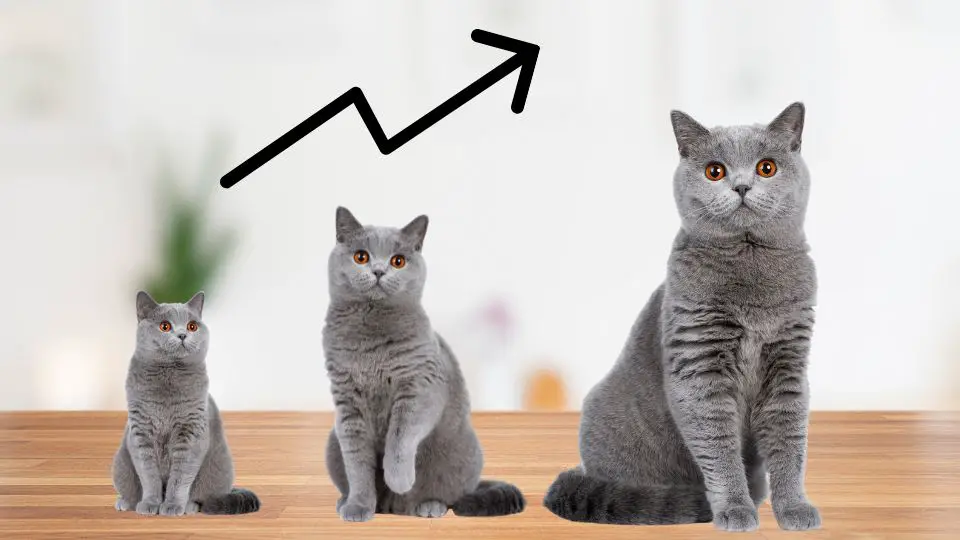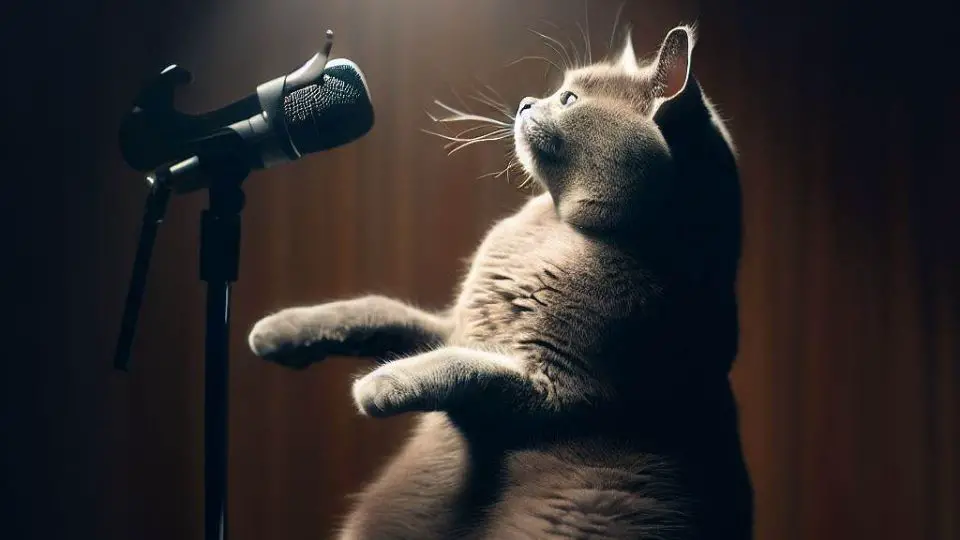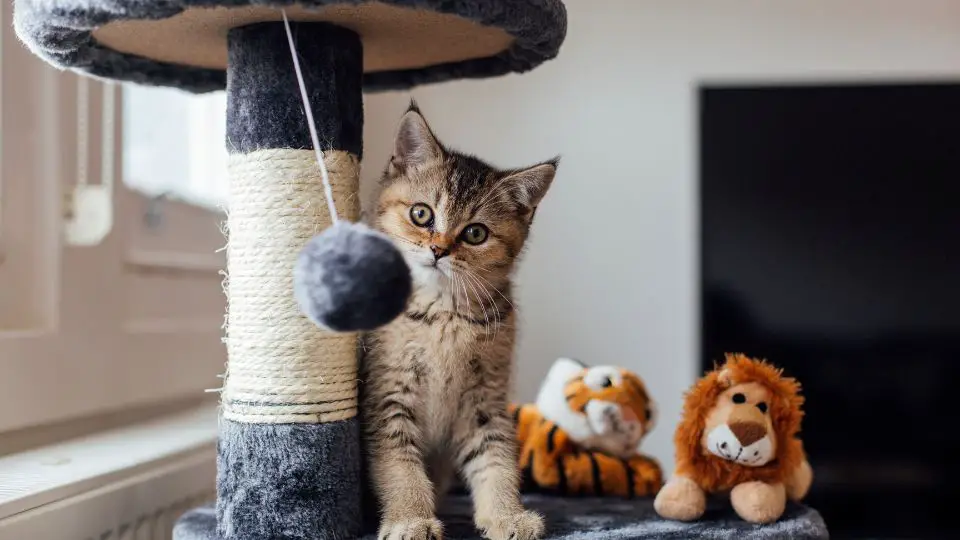Aggressive behavior in pets can be a frustrating and concerning issue for pet owners, especially when it comes to British Shorthair cats.
British Shorthair cats may occasionally display aggressive behavior towards their owners or other pets.
In this article, we will explore the possible reasons why a British Shorthair cat may become aggressive and what actions can be taken to address the issue.
Aggressive behaviours in cats
Here are some common aggressive behaviors that cats may display:
- Biting
- Scratching
- Hissing
- Growling
- Swatting
- Lunging
- Pouncing
- Chasing
- Stalking
- Blocking or cornering
- Puffing up or arching their back
- Lashing their tail
- Flattening their ears
- Dilating their pupils
- Urine spraying or marking.
Do British Shorthair cats bite?
While British Shorthair cats are generally known for their friendly and easy-going nature, they may still display aggressive behavior at times. This may include biting, scratching, or growling. If your British Shorthair is displaying these behaviors, it is important to observe their behavior and body language to determine the underlying cause.
Why does my British Shorthair bite me?
One common form of aggression in cats is biting. If your British Shorthair is biting you, there may be a few reasons for this behavior. For example, your cat may be feeling threatened or overstimulated, or they may be playing too roughly. It is important to observe your cat’s behavior and body language to determine the cause of their aggression. Read on to learn more about reasons for which your British Shorthair cat bites or displays other aggresive behaviour.
Are British Shorthair cats unfriendly?
British Shorthair cats are not unfriendly. They are often described as being calm and laid-back.
While some cats may be less social than others, this is not a characteristic specific to British Shorthair cats.
Each cat is an individual with their own unique personality and preferences. Some British Shorthair cats may be more outgoing and social, while others may be more independent and reserved. This variation in personality is true of all cat breeds. But in general, British Shorthair cats are pretty independent and them not being very cuddly or notalways displaying signs of affection it does not mean that they are unfriendly.
Causes of aggressive behaviours in cats
Here are some common causes of aggressive behavior in cats:
- Fear: Cats may become aggressive when they feel threatened or scared.
- Pain or medical issues: Pain or discomfort can cause cats to lash out in aggression.
- Lack of socialization: Cats that have not been properly socialized may feel threatened or uncomfortable around humans or other animals, leading to aggressive behavior.
- Overstimulation: Cats may become aggressive when they are overstimulated, such as during playtime.
- Frustration: Cats may become frustrated and agitated when their needs are not being met, such as when they are hungry or bored.
- Territorial behavior: Cats may become aggressive when they feel their territory is being threatened or invaded.
- Predatory behavior: Cats may display aggressive behavior when hunting or playing with toys.
- Hormonal changes: Unaltered cats may display aggressive behavior due to hormonal changes, such as during mating season.
- Environmental factors: Changes in the environment, such as a move to a new home or the addition of a new pet, can cause stress and lead to aggressive behavior in cats.
Actions to take for calming a British Shorthair cat
If your British Shorthair is displaying aggressive behavior, there are several actions you can take to help calm them down. These may include:
- Providing a calm and quiet environment: Reducing stimuli and creating a peaceful environment can help reduce your cat’s stress levels.
- Redirecting their behavior: Offering your cat an alternative outlet for their energy, such as a toy or scratching post, can help reduce their aggressive behavior.
- Rewarding positive behavior: Praising and rewarding your cat when they display calm and friendly behavior can help encourage this behavior in the future.
- Seeking veterinary care: If your cat’s aggressive behavior is due to a medical issue, seeking veterinary care is important to address the underlying issue.
Under no circumstances hit or shake your British Shorthair to try and calm him down as it will only make the matter worse.
Why is a British shorthair aggressive towards only one specific person/other pet
If your British Shorthair is only displaying aggressive behavior towards one specific person or pet, there may be several reasons for this. Addressing the underlying cause of your cat’s aggression can help reduce their aggressive behavior towards this specific individual or pet. Here are the main reason for which your British Shorthair might be aggresive towards only one specific person or other pet:
Territorial Behavior
One of the most common reasons why a British Shorthair cat may become aggressive towards only one specific person or other pet is territorial behavior. Cats are highly territorial creatures and may feel threatened when they perceive another cat or person as invading their space. This behavior can be exacerbated in multi-cat households where there may be competition for resources such as food, water, and litter boxes.
Negative Experiences
Another possible reason for a British Shorthair’s aggression towards a specific person or pet may be due to a negative experience in the past. For example, if a person or pet has inadvertently hurt or scared in the past, the cat may develop an aversion to that individual and display aggression towards them as a form of defense mechanism.
Socialization Issues
British Shorthair cats that have not been properly socialized may also be more likely to exhibit aggressive behavior towards specific individuals or pets. This is because they may not be accustomed to being around humans or other animals, leading to fear or discomfort in their presence. It is important to socialize cats from a young age in order to help them develop positive relationships with humans and other animals.
Medical Issues
In some cases, a British Shorthair’s aggressive behavior towards only one specific person or other pet may be due to an underlying medical issue. Cats that are in pain or discomfort may be more likely to exhibit aggressive behavior, especially when being touched or handled. If you suspect that your cat may be in pain or discomfort, it is important to seek veterinary care in order to address the underlying issue.
Addressing the Issue
If your British Shorthair cat is displaying aggressive behavior towards only one specific person or pet, there are several actions that can be taken to address the issue. These may include:
- Providing a safe and comfortable environment: Creating a peaceful and comfortable environment can help reduce your cat’s stress levels and make them feel more secure in their space.
- Encouraging positive associations: Offering treats and positive reinforcement when your cat is around the specific person or pet they are displaying aggression towards can help to build positive associations.
- Gradual exposure: Gradually exposing your cat to the specific person or pet they are displaying aggression towards, starting with short periods of time and increasing gradually, can help to reduce fear and discomfort.
- Seeking veterinary care: If you suspect that your cat’s aggression may be due to an underlying medical issue, seeking veterinary care is important in order to address the underlying issue and alleviate any pain or discomfort.
Conclusion
In conclusion, aggressive behavior in British Shorthair cats can be a challenging issue for pet owners to address. However, by understanding the possible reasons why a cat may become aggressive and taking appropriate actions to address the underlying cause, it is possible to help your British Shorthair cat feel more comfortable and secure in their environment and reduce their aggressive behavior.
Whether the cause is due to territorial behavior, negative experiences, socialization issues, or underlying medical issues, there are strategies that can be implemented to address the issue and promote positive behavior. With patience, positive reinforcement, and the right approach, you can help your British Shorthair cat become a happier and healthier member of your household.







